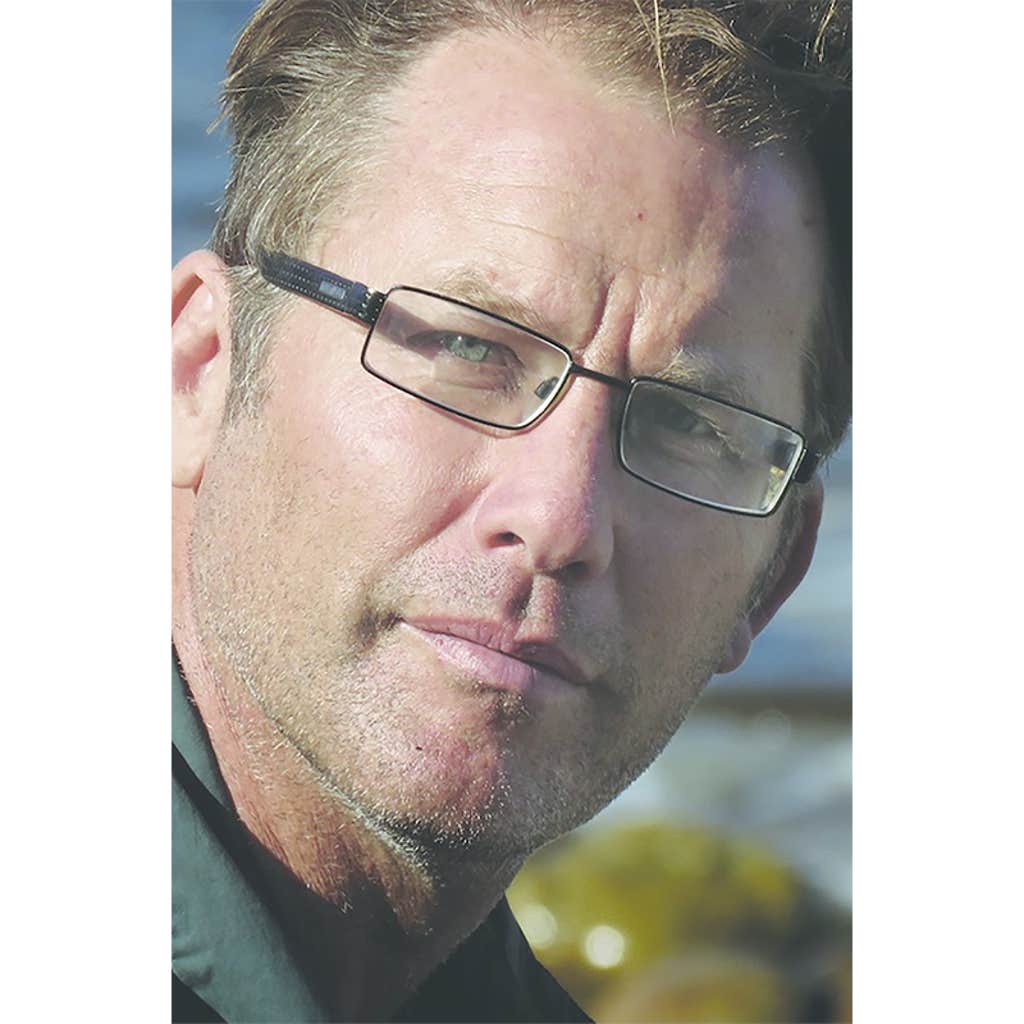1 Biodiversity is the single most precious thing on this planet
I’ve spent 12 years and 4,400 dives eye to eye with otters, crabs, octopus, cuttlefish, rock suckers, and many other exquisite creatures of the Great African Seaforest. I’ve learned directly from them and the underwater tracks they leave. I know their secret lives, and I still have so much to learn. They have filled my intellect with a fundamental truth and woven it around my heart. They have taught me that the single most precious thing we will ever encounter in our lives is the vast collection of animals and plants that make up the millions of species on Earth, which in turn make up all the habitats and ecosystems on land and ocean. We call it biodiversity, but it’s really the Mother of mothers, our life support system.

Of all the threats facing the Earth today, the loss of biodiversity is the biggest menace. Imagine that your body is the planet and your gut, which contains thousands of bacterial strains, is your biodiversity. We all know that as we lose the bacterial diversity in our guts, we get sick. As species biodiversity diminishes in response to climate change and industrial and technological expansion, the planet has been getting sick, too. Planetary biodiversity is the immune system of our Earth. She is losing the resilience required to cope with rapid changes. Even if we remove and sequester all of the excess carbon from the atmosphere and clean up our environment—both of which are crucial—we will still be immersed in catastrophe if the biodiversity collapse isn’t halted. If we work toward regeneration, rewilding, and protection of our biodiversity, we will also create essential carbon sinks.
Places of high biodiversity affect our minds and our entire beings in a profound and powerful way. They wake us up and give us hope and energy to experience life with joy and vitality. These places are the reservoirs of hope that have the potential to regenerate our natural world.
2 Nature heals
Deep in our blood and bones is the biology of the human animal. Our wild psyches crave a relationship with nature—one of reciprocity and care—but this desire is smothered by modern cravings for material comforts and power. This is why I write in my latest book of the double life, the Amphibious Soul: We each have a wild soul hidden underneath our tame public personas. This magnificent wild soul knows how to respect the planet and live with it sustainably—but it has been repressed. We need to find a more equal balance.
Our magnificent wild soul knows how to live with the planet.
In the process of writing this book and revisiting my many experiences in the wild, I can speak to how profoundly healing being in nature can be. In addition to the well documented physical benefits of cold-water immersion, other health benefits are being studied in detail by scientists. There is now no dispute that spending time in nature is beneficial for mind, body, and spirit. Today, in many countries around the world, doctors can actually prescribe time in nature as medicine. It’s not just about a walk in the park or a swim in the ocean, but about paying attention to the wilderness around you: paying attention to the tree, knowing its leaves, the texture of its bark. It’s about watching the animals and insects and birds that attend that tree, recognizing the patterns and prints of their presence. To pay attention like this is to learn the oldest language on Earth, the language of tracking. It’s a language of freedom and play, connection and empathy.
3 Indigenous wisdom must have a place in conservation programs
Being in nature and making conscious connection to it is the bedrock of Indigenous wisdom. According to a rough estimate by the World Bank, Indigenous people protect 80 percent of the remaining biodiversity on the planet, and yet they constitute just 4 percent of the global population, and have suffered the most in terms of exploitation and marginalization. Their long history of success with biodiversity reveals how imperative it is that we place Indigenous wisdom at the center of all global discussions that affect policies and programs for healing our damaged biosphere. All of Earth’s creatures will benefit. ![]()
Read an excerpt from Craig Foster’s new book, Amphibious Soul: Finding the Wild in a Tame World, here.
Lead image: metamorworks / Shutterstock
































